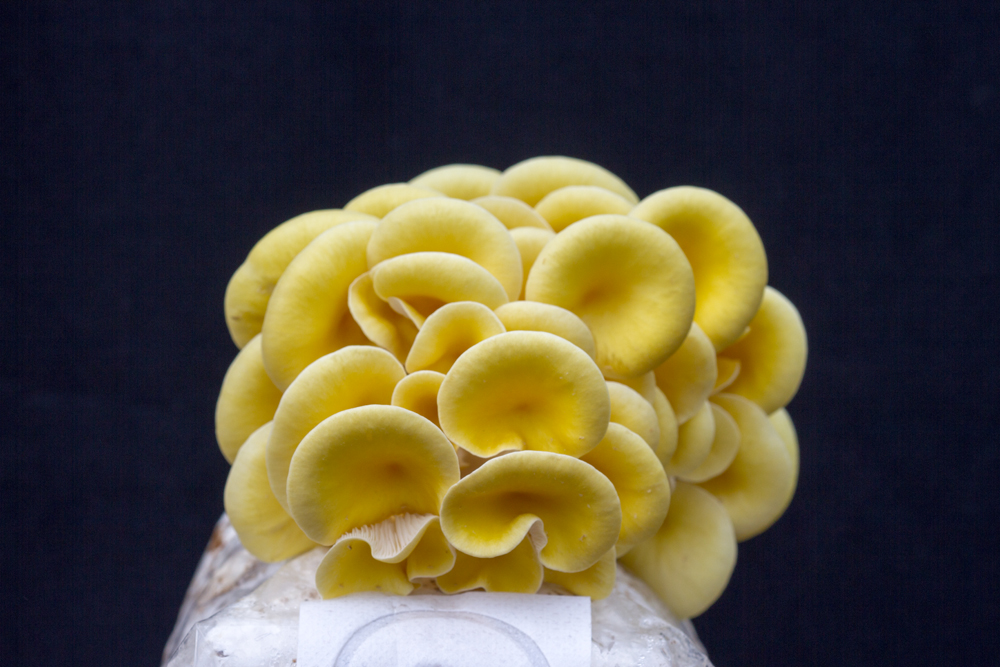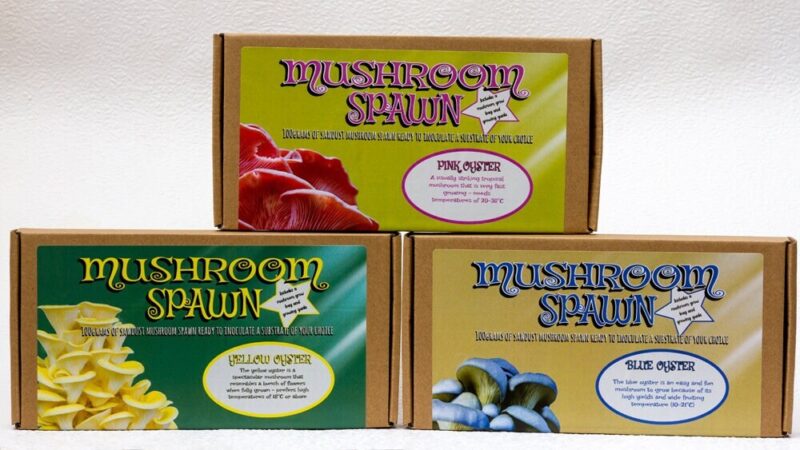Fungrow Mushroom Growing Kits contain everything you need to grow your own Gourmet Oyster Mushrooms from scratch and allow you to follow the mushroom growing process from start to finish.
The method itself is very straightforward, just mix the ingredients, add water and watch them grow!!!
Suitable for children and adults alike.

A strikingly beautiful and delicious gourmet mushroom that grows in golden yellow flower-like bunches - Spectacular!
Easy to follow instructions,
Oyster mushroom spawn
A spray bottle
A grow bag
Maximum yields substrate *
*Our Secret Source - A carefully developed substrate which provides maximum yields of mushrooms per kg.
Free Postage & Packaging
Best 'Grow your own mushroom kit'
Oyster mushroom growing kits are a fantastic choice of gift for anyone who loves to grow anything and everything especially if they relish eating what they grow.
Ideal pressent for people who revel in homegrown food as these gifts offer a delicious gourmet treat with the freshest, hand-harvested mushrooms
Great for dedicated mycologists or as an introduction for curious beginners, these kits are perfect for those who have everything or simply love to see how things work.
People of all ages and especially children enjoy the rewarding experience of watching these fast-growing, beautiful mushrooms thrive within a minimal amout of space...
Blue Oyster Mushroom Spawn and Yellow Oyster Mushroom Spawn must be kept refrigerated until used. Only the spawn needs to be refigerated which can be easily romved from the kit.
Our Blue and Yellow Mushroom Spawns are quite a hardy fungal strain and although we recomend growing
your kit within a few months of purchase,we have had equally good results with considerably aged spawn.
Pink Oyster Mushroom Spawn should not be refrigerated.
Pink Oyster Mushroom Spawn also has a shorter life span than the Blue and Yellow Spawn,
and therefor should be grown within the recomended couple of months of purchase.
Fancy a bit more of a challenge or already have your own substrate to try?
Using the same 100g Fungrow Oyster Mushroom Spawn thats included in our kits but without the Fungrow substrate...
The Mushroom Spawn comes with a rough guide as how to go about creating your own substrate and we include a specially ventilated mushroom grow bag which you will likely need.
Showing all 3 results


